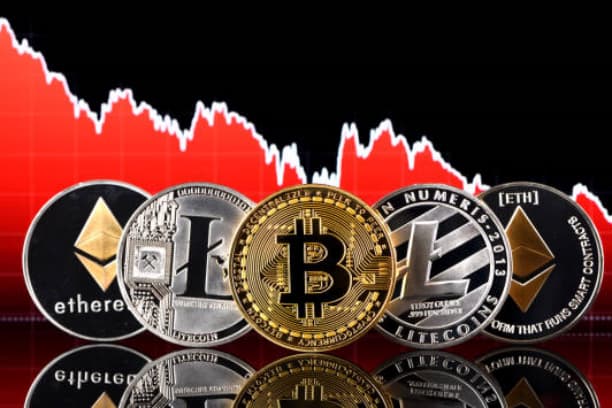What is the impact of Fed rate hike on Bitcoin?
In today's volatile global economic environment, the impact of the Federal Reserve's (US Federal Reserve System) monetary policy on various types of assets cannot be ignored. In particular, the impact on the cryptocurrency market, especially Bitcoin, has been significant. When the Fed raises interest rates, the liquidity of the market will be challenged and investors' risk appetite will change. This article will take a closer look at the impact of Fed rate hikes on the price of Bitcoin, and help you understand how Bitcoin's performance as an asset will be affected by changes in the economic environment, and how investors can respond to these changes.

Fed Rate Hike: Background and Basic Concepts
The Fed's interest rate hike refers to the process by which the U.S. Federal Reserve System raises its benchmark interest rate. The benchmark rate is the interest rate for short-term interbank loans and the basis for yields on various types of assets. Interest rate hikes usually occur when the U.S. economy is growing strongly and inflationary pressures are rising, with the aim of curbing excessively rapid inflation and maintaining economic stability. Interest rate hikes increase the cost of borrowing, which may discourage excessive consumption and investment and reduce the liquidity of the market, thus exerting certain pressure on the capital markets. For a high-risk asset such as Bitcoin, interest rate hikes tend to affect its investment attractiveness, as investors may shift to traditional assets with stable returns.
How Interest Rate Hikes Affect Bitcoin Demand and Price Fluctuations
When the Fed raises interest rates, the cost of capital rises and investors' appetite for risk generally decreases, which puts pressure on high-risk assets such as Bitcoin. As a digital asset, Bitcoin mainly attracts risk-averse investors who are looking for high returns. When market interest rates rise, these investors are more likely to shift their funds to stable-yielding, lower-risk assets such as government bonds or savings accounts. As a result, demand for Bitcoin will fall, and so will its price.
Interest rate hikes will also strengthen the US dollar, as high interest rates make dollar-denominated assets more attractive to foreign investors. A stronger dollar would have a negative impact on Bitcoin, which is usually priced in U.S. dollars, and a stronger U.S. dollar would mean that Bitcoin would become more expensive on the international market, dampening external demand.
Changes in Investor Behavior and Capital Flows
Typically, when the Fed raises interest rates, the direction of capital flows in the market changes. Many risky assets become less attractive and investors prefer stable assets. In such an environment, Bitcoin tends to face greater selling pressure. Even if the fundamentals of Bitcoin itself do not change much, the outflow of capital may cause the price of Bitcoin to fall. This is especially true at the beginning of a rate hike cycle.
The Long-Term Impact of Interest Rate Hikes on Bitcoin
While interest rate hikes may put pressure on the price of Bitcoin in the short term, such an effect is not necessarily sustainable in the long term. In practice, the value of Bitcoin depends primarily on its function as digital gold and the balance of supply and demand in the market. In the event of economic uncertainty or increased inflationary pressures, while interest rate hikes may lead to short-term price fluctuations, some investors will view Bitcoin as a tool to combat inflation, and such demand may drive up its price.
As a decentralized asset, Bitcoin itself is not controlled by the government and has a limited supply. These characteristics have led to Bitcoin being viewed as a counterweight to the devaluation of conventional currencies under certain circumstances, particularly in an economic or financial crisis. Therefore, even if interest rate hikes cause price fluctuations in the short term, demand for Bitcoin may still strengthen in the long term if economic instability persists or inflationary pressures intensify.

Analysis of the linkage between interest rate hikes and the Bitcoin market
To understand the impact of interest rate hikes on Bitcoin, we can find some patterns in historical data. According to the past few Fed rate hike cycles, when interest rates rise, the price of Bitcoin tends to come under pressure initially, and over time, if the economic environment continues to be unstable, market demand for Bitcoin will gradually pick up again. For example, when the Fed raised interest rates in 2018, the price of Bitcoin dropped significantly, but with the slowdown of the global economy and the rise of risk aversion in the market, the price of Bitcoin gradually rebounded.
As a result, the dynamics of the Bitcoin market are more the result of a combination of factors than just the unilateral impact of interest rate hikes. The market's reaction to rate hikes usually changes in response to changes in general economic conditions, inflationary pressures, and other macroeconomic factors.
How to deal with the impact of Fed rate hike on Bitcoin?
For the average investor, it is important to understand how the Fed's interest rate hike will affect the Bitcoin market and to manage risk accordingly. You can diversify your investment portfolio to avoid over-reliance on high-risk assets such as Bitcoin. When the interest rate hike cycle comes, appropriate allocation of funds to other more stable assets, such as stocks, bonds, etc., may be able to reduce the risk brought by market fluctuations.
Remain sensitive to market dynamics and pay close attention to the Fed's monetary policy changes and the market's reaction. This will enable you to make timely adjustments to your strategy in the event of sharp market fluctuations. For example, if the price of Bitcoin fluctuates sharply due to an interest rate hike, investors may consider adding to their positions at low points or reducing their holdings at high points, thereby realizing capital appreciation.
Frequently Asked Questions Q&A
Q1: How long will the Fed rate hike continue to affect the price of Bitcoin?
A1: The impact of a Fed rate hike is usually more pronounced in the short term, especially at the beginning. As the market adapts to the new rates, the impact will diminish. However, if the rate hike interacts with inflationary pressures or economic instability, it could have a long-term impact on the price of Bitcoin.
Q2: Can Bitcoin be an anti-inflationary tool?
A2: Yes, many see Bitcoin as a form of digital gold, and its limited supply in a hyperinflationary environment makes it an asset against currency depreciation. This does not mean that Bitcoin will be an effective defense against inflation in all cases, and market sentiment and macroeconomic factors still need to be taken into account.
Q3: How can I protect my Bitcoin investment when the Fed raises interest rates?
A3: One strategy to protect your Bitcoin investment during rate hikes is to diversify your risk by moving some of your capital to more stable assets. Staying on top of market developments and adjusting positions in a timely manner can minimize unnecessary losses.














